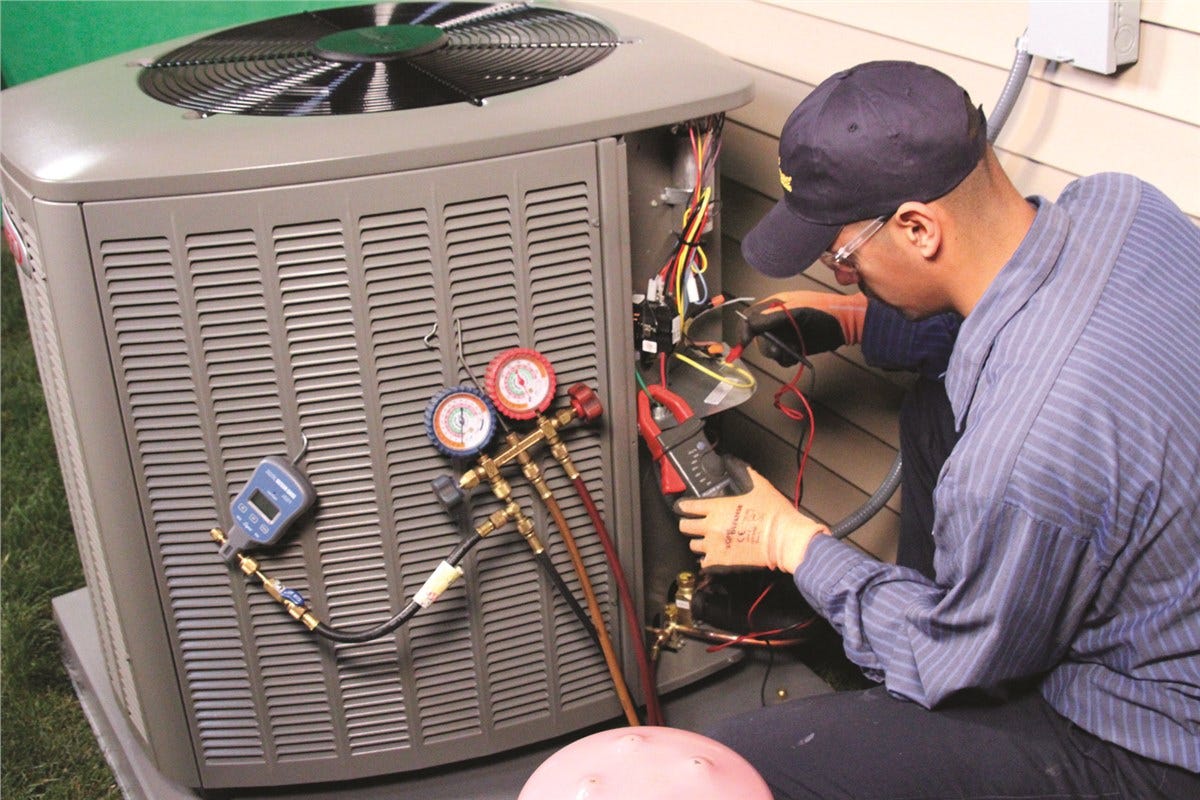A great night's sleep is essential for overall health and well-being, yet a lot of people have trouble to achieve it. A frequently neglected factor that can significantly impact sleep quality is the environment in which we rest, particularly the heating, ventilation, and air conditioning (HVAC) systems in our homes. Knowing how HVAC systems operate and the manner they contribute to a comfortable sleeping environment can help you improve your sleep quality and daily performance.

In this article, we will examine the multiple aspects of HVAC systems and their immediate influence on sleep. From keeping optimal temperature and humidity levels to ensuring clean indoor air quality, the role of HVAC is important not just for relaxation but for health as well. We will provide tips into common HVAC challenges, maintenance tips, and innovative solutions that can help form a sleep sanctuary tailored to your needs. By the end, you will have the knowledge necessary to make informed decisions about your HVAC system, enhancing your sleep quality for a healthier, more rejuvenating experience each night.
Understanding HVAC
HVAC stands for Heating Systems, Air Exchange, and Cooling, which are the 3 crucial components that function in unison to deliver comfort in home and commercial spaces. Heating are https://canvas.instructure.com/eportfolios/3548607/entries/13062045 for providing heat during colder months, while cooling units lower the temperature of the air when temperatures rise. Ventilation ensures that fresh air circulates throughout the space, eliminating contaminants and keeping the air fresh. Learning about how these systems work is essential for making informed decisions about upkeeping and upgrading home comfort.
The central function of an HVAC system is based on its various components, including the furnace, AC, thermal pump, and ventilation ducts. The heater or heat source generates heat that is sent through ventilation systems or heaters, while the AC lowers the temperature of and removes moisture from the air. Proper air movement is secured through carefully arranged vents and fans, guaranteeing that all parts of a house receives the necessary conditioning. Understanding of how these parts function in coordination helps in maximizing their performance and efficiency in energy use.
Typical HVAC problems can arise from insufficient maintenance, obsolete technology, or incorrect sizing of the system for the space. https://anotepad.com/notes/r7ffydix can appear in variable temperatures, rising energy bills, or a malfunctioning system. Consistent maintenance, such as changing filters and regular tune-ups, can stop many of these problems and extend the service life of the system. By comprehending HVAC systems and their frequent problems, homeowners can make smarter choices in maintenance or replacements, ensuring a comfortable living environment all year long.
HVAC Care and Efficiency
Consistent Heating, Ventilation, and Air Conditioning maintenance is crucial for making sure the system operates efficiently and efficiently. Clear filters, for example, enable better air circulation, which allows the system to maintain a desired heat level with less energy consumption. Neglecting maintenance can lead to increased energy bills and a drop in performance, as dirt and debris accumulate within the system. Planning routine inspections not only helps identify possible issues early but also extends the durability of the HVAC equipment.
Another key factor of HVAC efficiency is the adjustment of temperature control settings. It's vital to establish a balance that maintains comfort while also minimizing energy use. For instance, setting the thermostat a few degrees Fahrenheit higher in summer and a bit lower in winter can result to considerable savings over time. Several modern systems offer programmable thermostats that change automatically, ensuring peak efficiency based on your schedule and preferences.
Finally, maintaining the space around the HVAC unit clear and free from obstacles aids in efficient operation. This allows for enhanced airflow and prevents excessive heat or strain on the system. Regularly checking for leaks in the ducts and verifying proper insulation can additionally enhance energy efficiency. By taking these easy steps, homeowners can make sure their HVAC systems operate smoothly while helping to lower energy expenses and enhanced comfort in their living spaces.
HVAC's Impact on Indoor Air Quality
The state of interior air is vital for upholding a wholesome habitat environment, and HVAC systems play a significant role in this regard. By effectively managing heat and humidity, HVAC systems help to minimize the proliferation of mold, allergens, and other toxins that can influence air purity. Additionally, adequate ventilation offered by these systems ensures that fresh outdoor air flows inside, lowering the level of interior contaminants and providing a more pleasant environment.
To boost indoor air purity, choosing the correct air filters for your HVAC system is important. air conditioner installation -efficiency particulate air (HEPA) filters can capture a considerable percentage of floating particles, such as dust, pollen, and pet dander. Consistently changing these filters, as part of HVAC care, helps maintain optimal performance and guarantees that the air moving in your home is clear and healthy. Furthermore, some advanced HVAC systems come equipped with sophisticated filtration methods that can further boost air standards by removing fumes and harmful particles.
Humidity control is another critical function of HVAC systems that specifically affects interior air standards. Adequate humidity levels help avoid the growth of germs and viruses, which flourish in overly moist environments. Installing a dehumidifier or ensuring your HVAC system features humidity management features can greatly improve your home's air quality, making the residential space not only more enjoyable but also safer. Keeping humidity in check contributes to improved respiratory health and lessens allergy symptoms, leading to improved overall health for occupants.
